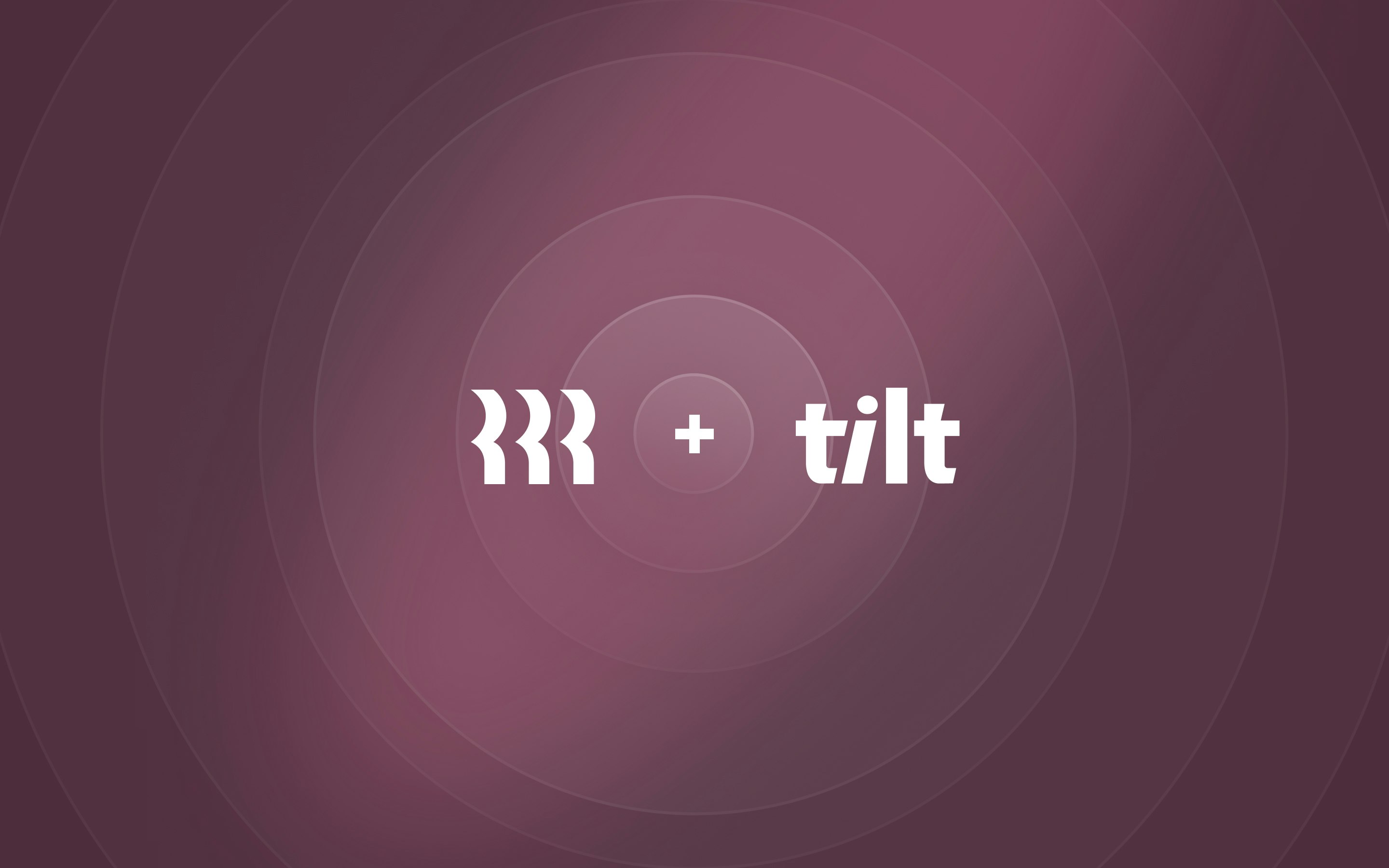Employment and labor laws help guarantee the fair treatment of employees within the workplace. While the US has established numerous federal regulations to protect workers from discrimination and ensure their safety at work, individual states can introduce their own specific provisions.
New Jersey stands out as a state strongly advocating for employee rights, surpassing the federal minimum in terms of benefits and protections. Consequently, if you plan to hire and operate in the Garden State, you need to familiarize yourself with its numerous stringent regulations.
Not sure where to begin? Rippling’s Professional Employer Organization service can expertly manage local tax registration and management, giving you the confidence to expand your business successfully.
Employment vs. labor law: What’s the difference?
You might have heard the terms "employment law" and "labor law" used interchangeably, but they're not quite the same in the eyes of the law. The main difference boils down to who is involved.
- Employment law deals with matters between an individual and their employer. Think of this as the rules that govern the relationship between an individual worker and their employer. It deals with topics like working hours, overtime pay, wages, hiring, and workplace discrimination and retaliation.
- Labor law is a subset of employment law that focuses on groups, such as labor unions. These regulations deal with things like union membership, union dues, and collective bargaining agreements.
Wages and hours in New Jersey
The New Jersey Division of Wage and Hour Compliance makes sure employers follow state laws when it comes to paying their employees. The division covers important areas like minimum wage, overtime hours, and pay transparency. It's essential to make sure you're on top of these rules when paying employees.
Minimum wage in New Jersey
The New Jersey minimum wage is $15.49 per hour for the majority of workers. This is all thanks to a piece of legislation signed by Governor Murphy back in February 2019, which gradually steered the state's minimum wage toward the $15 mark by 2024.
Here's a table detailing the minimum wage rates applicable in New Jersey across various categories (compared to the previous year):
Date
January 1, 2024
January 1, 2025
Most employers
$15.13
$15.49
Seasonal and small employers (fewer than 6 employees)
$13.73
$14.53
Agricultural employers
$12.81
$13.40
Cash wage for tipped workers
$5.26
$5.62
Wage for long-term care facility direct care staff members
$18.13
$18.49
This means the hourly rate in New Jersey now stands well above the federal minimum wage of just $7.25 per hour.
Note that the New Jersey Child Labor Law and Regulations outline guidelines regarding minors' number of hours, permissible job types, and the issuance of employment certificates for individuals under the age of 18 (more detail on this in the FAQ section).
Rippling has got your back when it comes to setting hourly wages for your employees. It automatically identifies and flags minimum wage law violations under the specific state regulations based on where employees are located, helping maintain compliance in New Jersey—or anywhere else in the US.
Overtime pay in New Jersey
Under the state's Wage and Hour Law, employers must compensate their nonexempt employees 1.5x their regular pay for hours worked over 40 in a workweek. Exemptions include individuals working in executive, administrative, or professional roles.
Rippling’s payroll software offers a practical solution to ensure compliance with overtime regulations, regardless of where your employees are located. It can automatically apply the appropriate overtime pay rates when employees’ hours trigger overtime pay requirements, keeping your payroll processes in line with applicable employment laws in New Jersey.
Pay transparency in New Jersey
Several US states and municipalities are embracing pay transparency laws, including salary disclosures, bans on salary history inquiries, and protections for wage discussions. A recent trend is the requirement for rate of pay disclosures in job postings, even for small employers.
According to a new pay transparency law, effective on June 1, 2025, New Jersey employers with 10 or more employees are required to include salary ranges and benefits in job postings.
Jersey City has its own local wage transparency law. Initially, the law applied to businesses with a "principal place of business" in the city. However, they expanded the law on June 15, 2022, to include all employers with five or more employees in Jersey City. Employers must now disclose salary ranges in all job postings, even for promotions or transfers.
With Rippling, you can manage and enforce compensation bands during onboarding. Rippling also automatically flags out-of-band adjustments, allowing you to approve special cases or block them as needed.
Breaks and rest periods in New Jersey
Employers have the discretion to determine whether their employees can take meal and rest breaks. While some states, such as California and New York, have stringent requirements mandating these breaks, the state of New Jersey operates under a different framework.
In New Jersey, employers are expected to comply with the federal Fair Labor Standards Act (FLSA), which doesn't require meal or rest breaks for adult employees. Consequently, in New Jersey, adult employees (aged 18 or older) don't have a legally enforceable right to meal periods or breaks.
Leaves of absence in New Jersey
The US has various laws in place to safeguard the job security of employees during periods of leave, particularly for family or medical reasons. In the state of New Jersey, two primary acts govern leaves of absence: the federal Family and Medical Leave Act (FMLA) and the New Jersey Family Leave Act (FLA). The FMLA allows for 12 weeks of leave in a 12-month period while the New Jersey FLA offers 12 weeks in a 24-month period.
Both the FMLA and FLA are unpaid. Employees may utilize authorized leave balances, such as vacation or sick leave, to continue receiving pay during their absence. However, these authorized leaves don't accumulate during unpaid leave periods.
Eligibility conditions
Employees in New Jersey must meet specific criteria to be eligible for leaves of absence under these acts:
- FMLA eligibility: To qualify for FMLA leave, an employee must have worked with their current employer for a minimum of 12 months and accumulated at least 1,250 hours of work during the preceding 12-month period as of the commencement date of the leave. Only employers with 50 or more employees are required to offer FMLA leave.
- New Jersey FLA eligibility: Under New Jersey law, eligibility for family leave is contingent on having been employed by the State of New Jersey for at least 1,000 base hours (regular work hours, excluding overtime) during the preceding 12-month period as of the leave's start date. New Jersey's FLA leave is mandated for employers with 30 or more employees.
Reasons for leave
The FMLA and FLA have different qualifying reasons under which employees can take time off. According to the federal FMLA, employees can take leaves of absence for the following:
- Birth or adoption: Employees can take leave for the birth or adoption of a child within one year of the event.
- Serious health conditions: Leave is available to care for a family member's serious health condition (child, spouse, or parent) or the employee's own serious illness. An employee's authorized leave time (e.g., administrative, vacation, sick leave) doesn't accrue during unpaid leave.
- Military family leave: Eligible employees can use their 12-week leave entitlement for qualifying difficulties related to a spouse, son, daughter, or parent on active duty or call to active duty status in the National Guard or Reserves. Additionally, the federal Military Caregiver Leave permits up to 26 weeks of leave to care for a covered servicemember.
Keep in mind that New Jersey's FLA law primarily allows for family leaves related to the birth or placement of a child, care for a seriously ill family member, jury duty leave, leave for victims of domestic violence and sexual assault, and military service, among other relevant reasons. However, it doesn't provide leave entitlement for an employee's own serious health condition.
Pregnancy disability leave in New Jersey
New Jersey Law Against Discrimination (NJLAD) makes it illegal for employers to discriminate against their employees based on pregnancy, childbirth, or sex. This means employers can't fire, reject, or relocate a pregnant employee solely because of their pregnancy.
Pregnant employees can continue working as long as they can do their jobs. If they can't work due to pregnancy-related reasons, they should receive similar considerations as those on disability leave. This includes using accumulated sick leave for temporary disability—just like other physical disabilities.
Moreover, pregnant employees may also have protected leave rights under the New Jersey Family Leave Act (NJFLA) and the federal Family and Medical Leave Act (FMLA). These laws ensure job protection for eligible employees, allowing them to take leave because of pregnancy, childbirth, or adoption.
Paid sick leave law in New Jersey
Employers in New Jersey, regardless of size, must offer full-time, part-time, and temporary employees up to 40 hours of earned sick leave annually for the following reasons:
- Their own or a family member's illness, injury, or health condition, including preventive care
- Domestic or sexual violence against them or a family member
- When their workplace or a child's school or care facility closes during a public health emergency
- If a public health authority determines their presence could endanger others
- To attend school-related events or conferences for their child as requested by school staff
Employees accrue one hour for every 30 hours worked, up to a maximum of 40 hours. They can choose to work extra hours instead of using sick leave with employer consent, but this can’t be mandated.
Up to 40 hours of unused sick leave can be carried over, but employers are only required to allow up to 40 hours of use per year. Paying for unused sick leave is at the employer's discretion.
With Rippling, you can automate and tailor your leave policy, providing comprehensive insight into how your employees use it.
Workplace safety in New Jersey
The NJ Department of Health (NJDOH) plays a crucial role in safeguarding employee well-being through ongoing workplace health risk monitoring and the implementation of safety initiatives. Employers bear the responsibility of ensuring a safe work environment by providing reliable equipment, comprehensive safety training, and robust safety policies.
Furthermore, the Occupational Safety and Health Administration (OSHA), a federal agency with nationwide jurisdiction, is dedicated to establishing and enforcing workplace standards to enhance worker safety. These standards include requirements to:
- Supply fall protection, including safety harnesses and lifelines.
- Prevent trench collapses during excavation work.
- Ensure the safety of workers entering confined spaces such as maintenance holes or grain bins.
- Minimize exposure to excessive noise levels that may harm hearing.
- Install guards on machines to prevent accidents.
- Prevent exposure to hazardous substances like asbestos and lead.
- Provide workers with respirators and other necessary safety gear, typically at no cost.
- Equip healthcare professionals with needles and sharp instruments designed with built-in safety features to prevent skin punctures or cuts that could lead to exposure to infectious diseases.
- Conduct worker training using language and terminology that they can easily understand, focusing on hazards and how to safeguard themselves.
In New Jersey, an OSHA-approved state plan exclusively covers state and local government workers, while private employers and their employees are subject to federal OSHA regulations. More details about New Jersey's State Plan can be found here.
OSHA also mandates that all workplaces in New Jersey have a well-documented Injury and Illness Prevention Program (IIPP) program in place.
Rippling PEO provides employers with a hassle-free, pay-as-you-go workers’ comp plan. This eliminates the need for making upfront annual payments, enabling you to expand your business seamlessly in New Jersey and across the US.
Discrimination and harassment laws in New Jersey
New Jersey takes a proactive stance against discrimination and harassment through the New Jersey Law Against Discrimination (LAD). This state legislation not only meets federal civil rights standards but goes further in protecting individuals from various forms of discrimination and harassment.
Employers in New Jersey carry the onus of compliance with anti-discrimination laws throughout the employment lifecycle. From hiring to compensation, promotions, and terminations, making employment decisions based on protected characteristics is illegal.
The LAD casts a wide net of protection, making it illegal to discriminate against or harass someone based on characteristics such as:
- Race
- Ethnicity
- Ancestry
- Religion
- National origin
- Sex
- Sexual orientation
- Gender identity and expression
- Disability (physical and mental)
- Genetic information
- Marital status
- Military or veteran status
- Age (40 and over)
- Medical condition
Note that discrimination can take many forms and can occur in different contexts. For example, it could involve unequal pay due to gender or refusal to hire or promote based on race.
The LAD also addresses bias-based harassment. If a NJ employee experiences harassment based on protected characteristics, resulting in a hostile environment, employers must take prompt and reasonable actions to prevent and address this harassment.
It's important to note that the LAD includes strong safeguards against retaliation. Individuals who report discrimination or harassment or exercise their rights under the law are shielded from adverse actions, and employers can’t terminate someone for reporting harassment.
While New Jersey doesn't mandate sexual harassment training for private-sector employees, state government employees and supervisors are required to complete certified sexual harassment training within six months of employment, with refresher courses mandated every two years. Rippling’s Learning Management System offers comprehensive sexual harassment training courses to ensure compliance with state requirements.
Keep in mind that employers are always responsible for the actions of their employees, regardless of whether they’re aware of any harassment or discrimination occurring.
Unions in New Jersey
A union is an organized group of workers with a shared goal of discussing and negotiating various work-related matters, including compensation and working conditions. The process of collective bargaining involves the union engaging in negotiations with the employer to reach mutual agreements regarding wage payments, working conditions, and other job-related issues.
It's important to recognize that federal law guarantees certain rights to unions and employees, as outlined in the National Labor Relations Act (NLRA). Under this act, employees have the following rights:
- The right to join or create a union
- The ability to engage in union activities to improve wages, benefits, and working conditions
- The option to choose or request union representation
- The right to participate in union elections
Employers are prohibited from using threats or penalties based on an employee's decision to support or abstain from supporting a union. Similarly, even unions aren't permitted to issue threats to employees regarding potential job loss if they choose not to support the union.
Notably, there are "right-to-work" laws in some states, requiring unionized companies to accept non-union workers. These laws prevent companies from mandating union membership and the payment of union dues. While many states have adopted these laws, strong union states like New Jersey have not, and New Jersey courts have upheld union membership requirements.
FAQs about New Jersey labor and employment laws
Are independent contractors covered under New Jersey employment laws?
No. Unlike employees, independent contractors don't receive any protections under New Jersey employment laws. This makes correctly classifying workers in the state crucial. Luckily, you can use our analyzer tool to accurately distinguish between an employee and a contractor.
Does at-will employment exist in New Jersey?
According to New Jersey law, the default employment arrangement is considered at-will unless an employment contract is in place. This means that, in general, an employer has the authority to terminate an employee at their discretion and for any legitimate reason.
What privacy rights do employees have in New Jersey?
In New Jersey, employee privacy rights vary depending on the area of concern:
- Technology use: Employers can monitor work-related technology but must notify employees. They can't eavesdrop on personal calls.
- Drug testing: Limited drug and alcohol testing is allowed, with stricter rules for safety-sensitive jobs.
- Medical marijuana: Employees using medical marijuana outside of work are protected.
- Medical information: Employers must safeguard medical data and limit access.
- Social media: Employers can't ask for social media passwords and face limitations on acting upon an employee’s social media activity.
Are background checks legal in New Jersey?
Employers must follow federal (Fair Credit Reporting Act) and state regulations when running background checks in New Jersey. Specifically, New Jersey companies with 15 or more employees can’t inquire about criminal history information during the initial stages of the hiring process. There are some exceptions to this law, including for corrections and law enforcement positions.
Additionally, according to the New Jersey Clean Slate Law, expunged criminal records can’t be considered at any point in the hiring process.
Are whistleblowers protected in New Jersey?
Yes, the Conscientious Employee Protection Act (CEPA) protects whistleblowers in New Jersey.
Is workers’ compensation coverage required in New Jersey?
Yes. All employers need to offer workers' compensation insurance to their employees. Failing to provide workers’ compensation coverage to employees is deemed as a disorderly person's offense and, if found intentional, a crime of the fourth degree.
Are there required healthcare benefits in New Jersey?
While New Jersey doesn't mandate employers to offer health insurance to their employees, federal law stipulates that employers with 50 or more full-time employees must provide health insurance benefits.
Are New Jersey employers required to provide bereavement leave?
No, employers in New Jersey aren't mandated to offer bereavement leave to their employees.
What employee protections are available in New Jersey if layoffs occur?
Employees working for a business subject to the federal Worker Adjustment and Retraining Notification (WARN) Act are entitled to a 60-day notice period before mass layoffs, regardless of their location within the US, including New Jersey.
What are the child labor laws in New Jersey?
Child labor regulations in New Jersey permit minors under 18 years of age to work but require employers to comply with strict provisions. No minor under 18 can work without obtaining and submitting the "A300 Combined Certification Form" online. This certificate ensures legal protections for young workers.
This blog is based on information available to Rippling as of March 19, 2025.
Disclaimer: Rippling and its affiliates do not provide tax, legal, or accounting advice. This material has been prepared for informational purposes only, and is not intended to provide, and should not be relied on for tax, legal, or accounting advice. You should consult your own tax, legal, and accounting advisors before engaging in any related activities or transactions.







